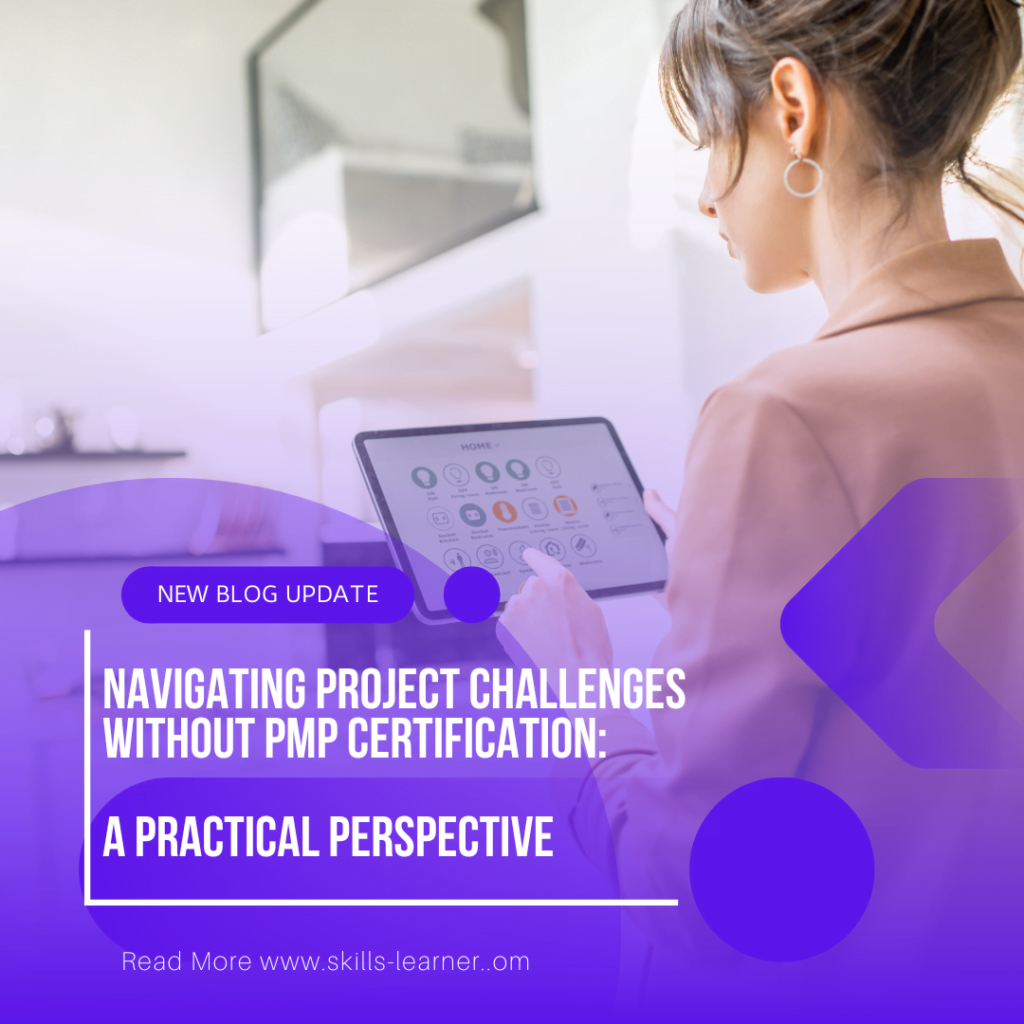No products in the cart.
Blog
Skills Learner > Blog > Project Management > Navigating Project Challenges Without PMP Certification: A Practical Perspective
Navigating Project Challenges Without PMP Certification: A Practical Perspective
Without PMP Certification

Embarking on a project management journey is akin to setting sail on uncharted waters. While the Project Management Professional (PMP) certification is a well-respected credential in the field, not having it doesn’t mean smooth sailing is impossible. In fact, the absence of a PMP certification can pose unique challenges that, when addressed strategically, can lead to valuable learning experiences and project success.
1. Limited Structured Approach
One of the primary challenges faced without PMP certification is the absence of a standardized and globally recognized project management framework. PMP-certified professionals are well-versed in the Project Management Body of Knowledge (PMBOK), providing them with a structured approach to initiate, plan, execute, monitor, and close projects. Without this foundation, project managers might find it challenging to implement a consistent and proven methodology.
2. Communication Hurdles
Effective communication is the lifeblood of any project. PMP certification equips professionals with a common language and set of best practices, facilitating communication among team members, stakeholders, and clients. Without this certification, project managers may struggle to articulate project goals, risks, and progress in a way that resonates with diverse stakeholders.
3. Risk Management Dilemmas
PMP-certified individuals are adept at identifying, analyzing, and managing risks systematically. Without this certification, project managers may find it challenging to proactively identify potential roadblocks and implement mitigation strategies. This lack of structured risk management could lead to unexpected challenges derailing the project timeline and objectives.
4. Resource Allocation Conundrum
PMP certification emphasizes the importance of resource management, ensuring that project managers allocate resources effectively to optimize productivity. Without this knowledge, project managers might encounter difficulties in balancing the workload, resulting in overburdened team members or underutilized resources.
5. Scope Creep and Change Management
Managing scope creep and changes in project requirements is a delicate art that PMP-certified professionals excel in. Without this certification, project managers may struggle to establish robust change management processes, leading to unclear project scopes and potentially jeopardizing the project’s success.
6. Lack of Recognition
While a PMP certification doesn’t guarantee success, it does offer a level of professional recognition and credibility. Without it, project managers may face skepticism from stakeholders or team members, especially in organizations that prioritize formal certifications.
While PMP certification undoubtedly provides a solid foundation for navigating project management challenges, not having it doesn’t condemn a project to failure. The key lies in recognizing the potential pitfalls and actively addressing them through continuous learning, effective communication, and strategic project management practices. By embracing these challenges head-on, project managers can transform them into opportunities for growth, resilience, and success in the dynamic world of project management.